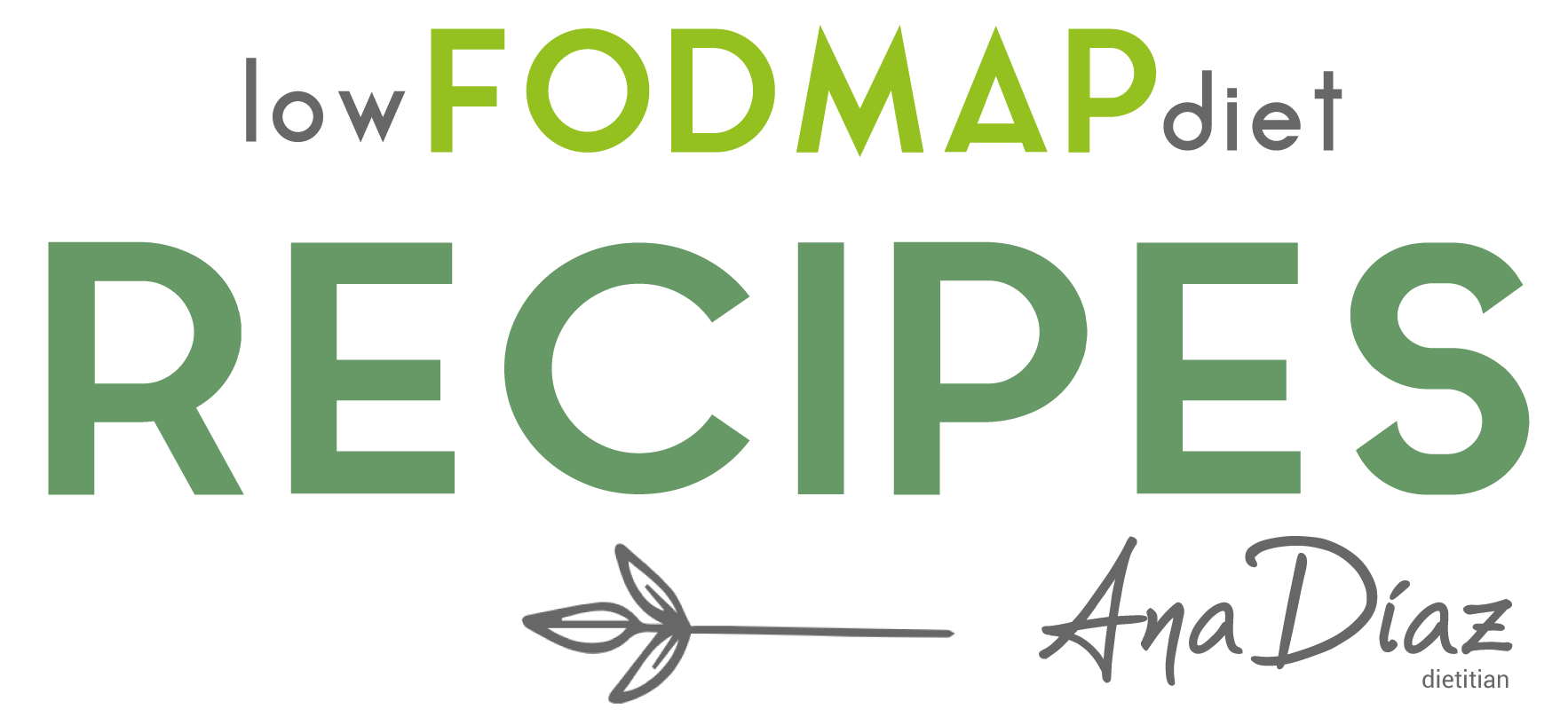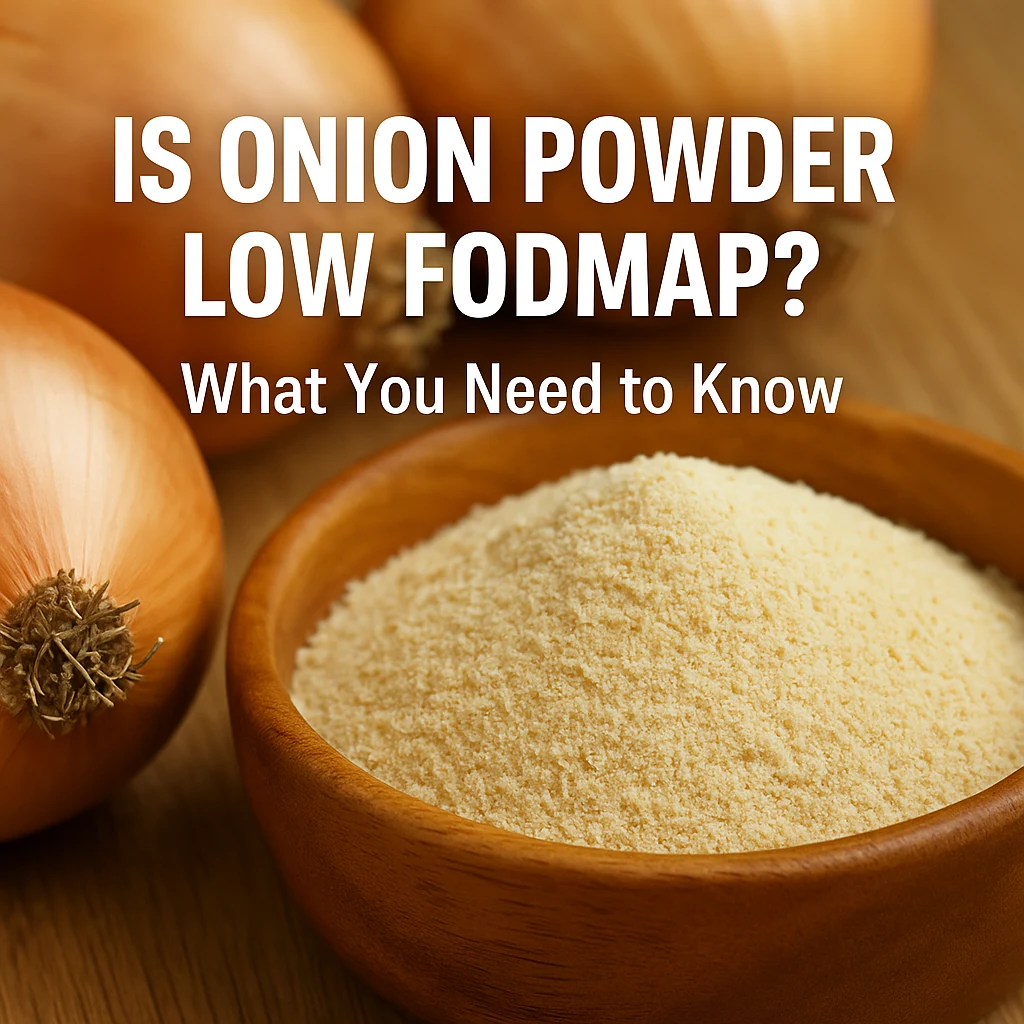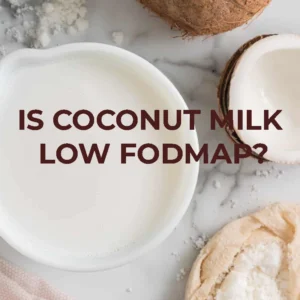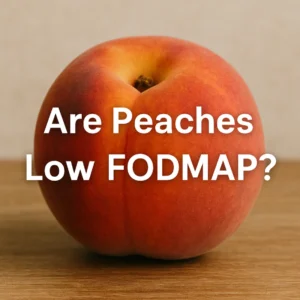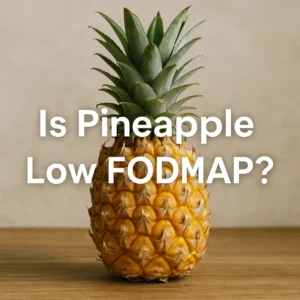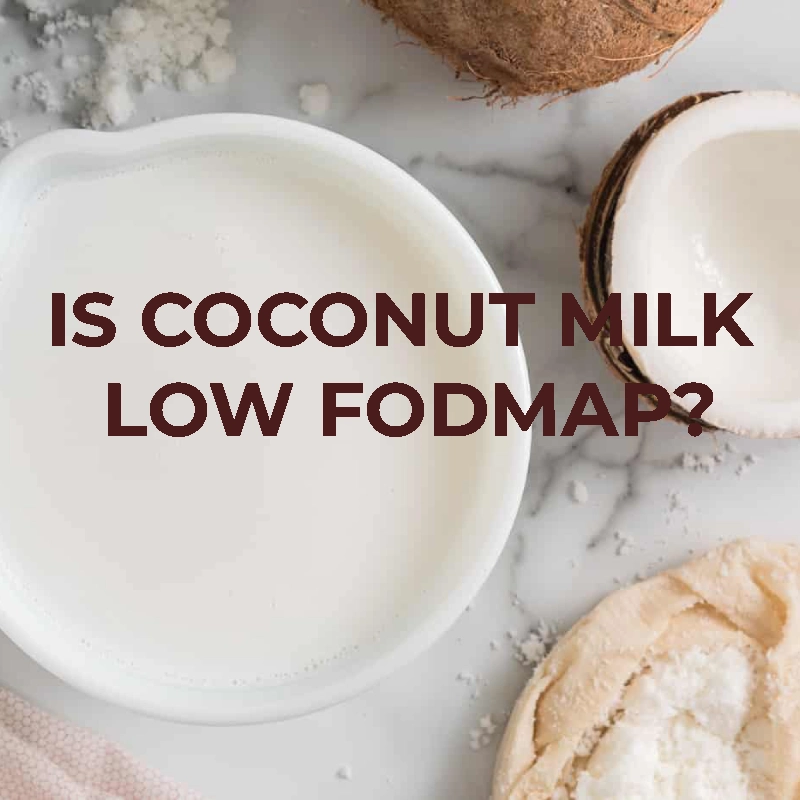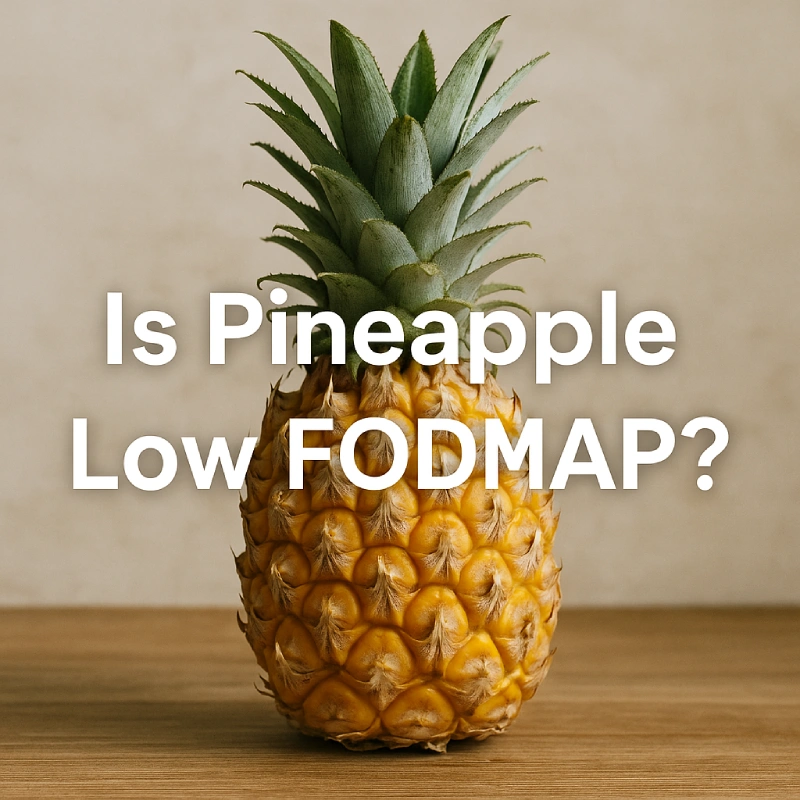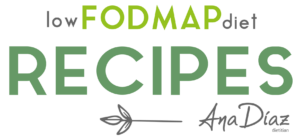Living with IBS often means paying close attention to even the tiniest ingredients in your meals. If you’ve already asked yourself is garlic powder low FODMAP?, then the next natural question is: what about onion powder?
Onions are one of the most common flavour bases in cooking. They appear in soups, sauces, marinades, spice blends, and even snacks. But for those following a low FODMAP diet, onions are also one of the biggest triggers.
In this guide, we’ll explore what Monash University, the world leaders in FODMAP research,say about onion powder, why it causes symptoms, and which safe substitutes you can rely on.
Table of Contents
Why are onions such a trigger food?
Onions are naturally high in fructans, a type of oligosaccharide. These carbohydrates are part of the FODMAP family, which stands for:
- Fermentable
- Oligosaccharides (like fructans and GOS)
- Disaccharides (like lactose)
- Monosaccharides (like excess fructose)
- And
- Polyols (like sorbitol and mannitol)
Fructans are poorly absorbed in the small intestine. Instead, they travel to the large intestine, where gut bacteria ferment them quickly. This fermentation process produces gases and draws water into the gut, leading to bloating, abdominal discomfort, and changes in bowel movements.
Monash University has tested many varieties of onion; white, brown, red, Spanish, and even shallots. The result is always the same: all onions are high in fructans in every typical serving size.
So, is onion powder low FODMAP?
The simple answer is no. Onion powder is not low FODMAP.
Onion powder is made by dehydrating onions and grinding them into a fine powder. This process does not reduce fructan levels; in fact, it concentrates them. Even tiny amounts can be problematic, especially because many people with IBS are highly sensitive to fructans.
Just like garlic powder, onion powder remains high FODMAP at any typical serve. If you are in the elimination phase of the low FODMAP diet, Monash University recommends avoiding it completely.
Can cooking make onion powder safe?
Some people assume that roasting, boiling, or dehydrating onions might “remove” the FODMAPs. Unfortunately, this isn’t true. Fructans are heat-stable and water-soluble.
- Heat-stable: Cooking does not destroy them.
- Water-soluble: If you boil onions in soup or stock, the fructans leach into the liquid, which means even onion-flavoured broth is high FODMAP.
The only exception is oil, because fructans do not dissolve in fat. This is why onion-infused oils are a safe alternative.
Hidden sources of onion powder
Even if you don’t add onion powder at home, it’s present in many processed foods, often labelled as “seasonings,” “flavourings,” or “spices.”
Common foods that contain onion powder include:
- Spice blends and rubs
- Ready-made soups and sauces
- Salad dressings
- Pre-marinated meats
- Chips and savoury snacks
Reading ingredient lists carefully becomes essential. If you see “onion powder,” “onion extract,” or “natural flavourings,” it’s best to avoid during elimination.
Low FODMAP alternatives to onion powder
Thankfully, you don’t need onion powder to enjoy flavourful cooking. Here are some Monash-approved alternatives:
1. Onion-infused oil
Since fructans don’t dissolve in fat, you can safely use oil infused with onion flavour. This can be purchased ready-made (look for Monash-certified brands) or prepared at home by gently cooking onion slices in oil and straining them out.
2. Spring onion greens
The white bulb is high FODMAP, but the green tops are low FODMAP and can be used freely. Chop them fresh into salads, stir-fries, or soups.
3. Leek greens
Similarly, the dark green tops of leeks are low FODMAP and add a gentle sweetness. They work beautifully in soups, stocks, and casseroles.
4. Asafoetida powder
This spice is common in Indian cooking and offers a strong onion-garlic flavour. Be warned: it smells pungent in the jar (sulphurous, even), but once cooked briefly in oil, the aroma transforms into a pleasant, savoury flavour.
5. Chives and garlic chives
These herbs are naturally low FODMAP and can be sprinkled over dishes for a fresh, onion-like note.
Practical cooking tips for replacing onion powder
- In soups and broths: Use leek greens and spring onion greens at the start, and finish with chives.
- In stir-fries: Start with garlic- or onion-infused oil, then add fresh ginger and spring onion tops.
- In spice rubs: Mix smoked paprika, cumin, and coriander as a base instead of onion powder.
- In dips and dressings: Blend chives, lemon juice, and herbs with onion-infused oil.
Connecting the dots: Garlic, onion, and beyond
Since onions and garlic are so often used together, it’s useful to learn about both. You can read the companion articles here:
Together, these guides give you the knowledge and tools to cook flavourful, gut-friendly meals.
FAQs about Onion Powder and the Low FODMAP Diet
Is onion powder low FODMAP?
No. It is high FODMAP because it contains concentrated fructans.
Can I use onion salt instead?
No. Onion salt is onion powder mixed with salt, it still contains fructans.
Are cooked onions safer than raw ones?
No. Cooking softens flavour but does not reduce FODMAP content.
What about dehydrated onions or onion flakes?
These are also high FODMAP.
Can I reintroduce onion later?
Yes, after the elimination phase. Reintroduce carefully following Monash’s guidance.
What’s the best substitute for onion powder?
Spring onion greens, leek greens, chives, onion-infused oil, or asafoetida.
Is shallot powder low FODMAP?
No. Shallots, whether fresh or powdered, are high in fructans.
Gentle reminder
Remember, the low FODMAP diet is not a lifelong restriction. It’s a tool to help you understand your triggers and eventually expand your diet again. Onion powder may be a permanent trigger for some, but others may discover they can tolerate small amounts. The key is testing slowly and listening to your body.
